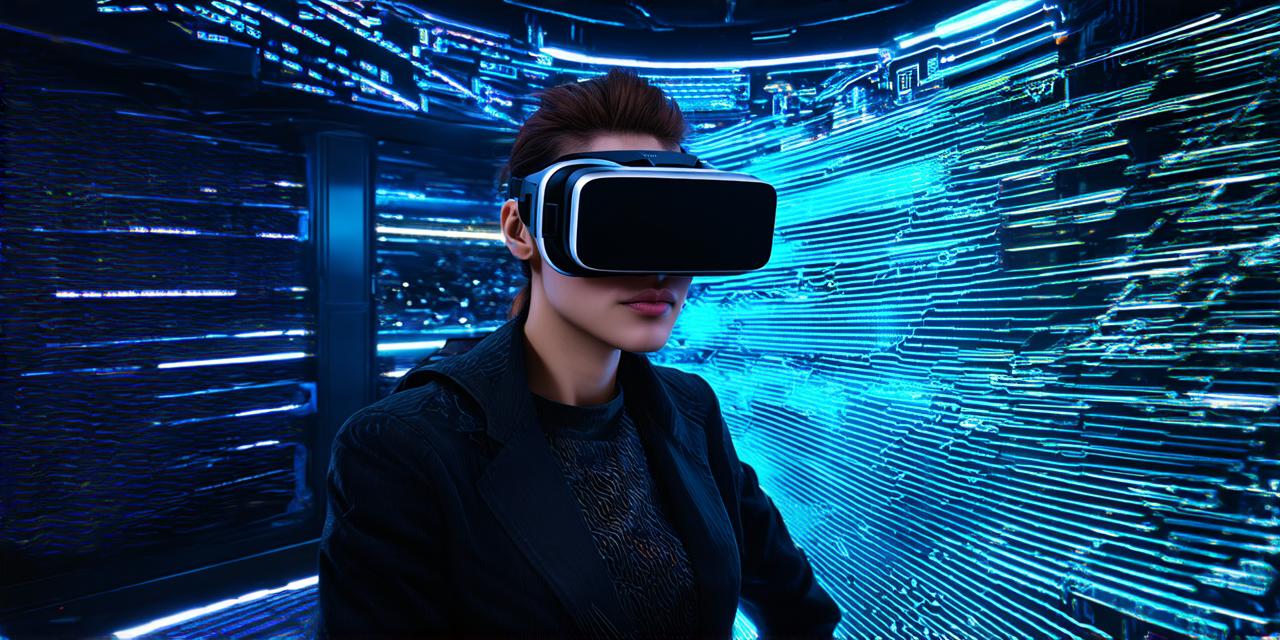Virtual reality (VR) is a rapidly growing technology that is already transforming many industries, including gaming, healthcare, education, and entertainment. VR allows users to experience immersive and interactive environments in ways that were previously impossible, and it has the potential to revolutionize the way we work, learn, and interact with each other.
Virtual Reality in Gaming: The Future of Entertainment
One of the most well-known applications of virtual reality is in gaming, where it has already had a huge impact on the industry. VR games allow users to fully immerse themselves in a game world and interact with the environment in ways that were previously not possible. This has led to some truly unique and innovative experiences, such as the popular VR game “Beat Saber” which allows players to use virtual reality controllers to slash through blocks of light that represent music beats, or the horror-themed game “Alyx” which uses room-scale VR to create a terrifyingly realistic experience.
The future of gaming is likely to continue to be dominated by virtual reality, as more and more games are developed specifically for this technology. This will not only lead to new and exciting experiences for gamers but it will also drive innovation in the industry, leading to new ways of storytelling and gameplay mechanics.
Virtual Reality in Healthcare: Improving Patient Outcomes
Another area where virtual reality is having a significant impact is in healthcare. VR technology can be used to create immersive and interactive simulations that allow medical professionals to practice procedures and treatments in a safe environment, without the risk of harming real patients. This has already led to some exciting developments in the field, such as the use of VR to train surgeons in performing complex operations, or the use of VR therapy to treat conditions like PTSD and anxiety disorders.
The future of healthcare is likely to be heavily influenced by virtual reality, as it continues to offer new and innovative ways of training medical professionals and treating patients. This will not only lead to improved patient outcomes but it will also help to reduce costs and improve efficiency in the healthcare system.
Virtual Reality in Education: Enhancing Learning Experiences
Virtual reality is also having a significant impact on education, where it is being used to create immersive and interactive learning experiences that are more engaging and effective than traditional methods. For example, VR can be used to create virtual field trips to historical sites or natural wonders, or to create simulations of complex scientific concepts that are difficult to explain through traditional means.
The future of education is likely to continue to be shaped by virtual reality, as it offers new and innovative ways of learning that are more engaging and effective than traditional methods. This will not only help to improve the quality of education but it will also make it more accessible, allowing students from all over the world to access high-quality educational experiences regardless of their location.
Virtual Reality in Entertainment: The Future of Immersive Experiences
Virtual reality is also likely to have a significant impact on entertainment as a whole, as it continues to offer new and innovative ways of creating immersive and interactive experiences for users. This will not only lead to new and exciting experiences for consumers but it will also drive innovation in the industry, leading to new ways of storytelling and engagement.
One area where VR is already having a significant impact is in the world of live events, such as concerts and sports matches. Virtual reality technology can be used to create immersive experiences that allow users to feel like they are part of the action, whether it’s standing on the sidelines of a football match or dancing at a concert.
